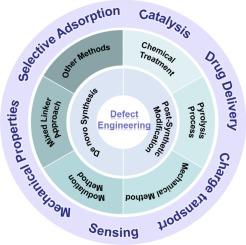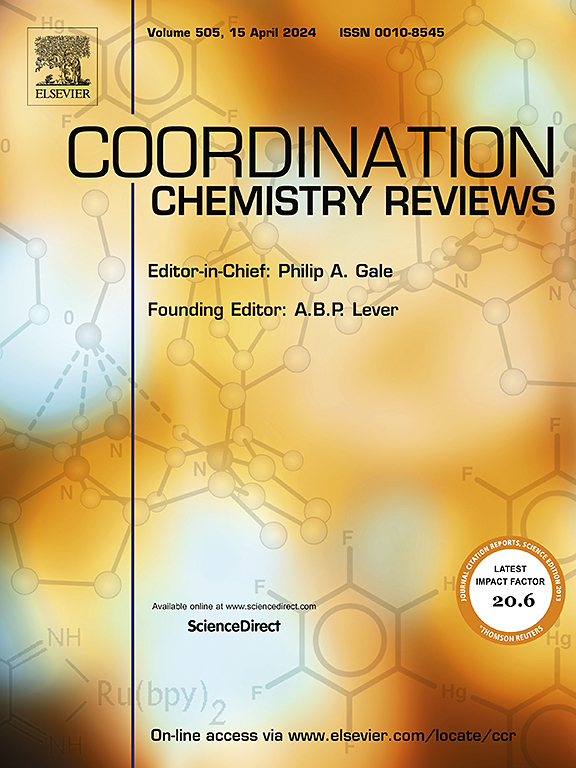From construction strategies to applications: Multifunctional defective metal-organic frameworks
IF 20.3
1区 化学
Q1 CHEMISTRY, INORGANIC & NUCLEAR
引用次数: 0
Abstract
The creation of defects in metal-organic frameworks (MOFs), known as defect engineering, offers an additional way for MOFs to personalize their specific functions and applications. Defect engineering not only provides new opportunities for MOFs in the fields of adsorption and catalysis, but also opens up a new avenue in terms of physical properties such as mechanical response and conductance. In this review, we focus on two classes of synthetic strategies (de novo synthesis and post-synthetic modification) for defective MOFs and their applications in the fundamental field, the effects of defect engineering on MOFs performance are as well discussed in detail. In the end, we highlight the challenges and future developments that can be expected about defective MOFs. Overall, this review can be applied as a potent tool for revealing the structure–activity relationships and accelerating the on-demand design of defective MOFs. We also hope this review will provide powerful assistance to researchers in utilizing defect engineering for switching new avenues for MOFs, enabling the better design and synthesis of new materials with specific functionalities.

求助全文
约1分钟内获得全文
求助全文
来源期刊

Coordination Chemistry Reviews
化学-无机化学与核化学
CiteScore
34.30
自引率
5.30%
发文量
457
审稿时长
54 days
期刊介绍:
Coordination Chemistry Reviews offers rapid publication of review articles on current and significant topics in coordination chemistry, encompassing organometallic, supramolecular, theoretical, and bioinorganic chemistry. It also covers catalysis, materials chemistry, and metal-organic frameworks from a coordination chemistry perspective. Reviews summarize recent developments or discuss specific techniques, welcoming contributions from both established and emerging researchers.
The journal releases special issues on timely subjects, including those featuring contributions from specific regions or conferences. Occasional full-length book articles are also featured. Additionally, special volumes cover annual reviews of main group chemistry, transition metal group chemistry, and organometallic chemistry. These comprehensive reviews are vital resources for those engaged in coordination chemistry, further establishing Coordination Chemistry Reviews as a hub for insightful surveys in inorganic and physical inorganic chemistry.
 求助内容:
求助内容: 应助结果提醒方式:
应助结果提醒方式:


